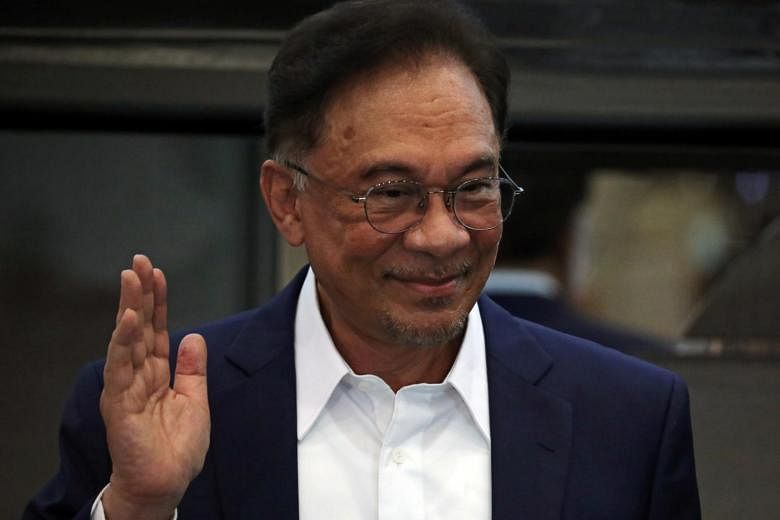KUALA LUMPUR (BLOOMBERG) - Investors faced with a pullback in Malaysian assets just got jolted by a political twist that spells turbulence ahead for one of Asia's more resilient markets.
Opposition leader Anwar Ibrahim on Wednesday (Sept 23) dropped a bombshell by claiming to have enough lawmaker support to form a government. Prime Minister Muhyiddin Yassin rejected the assertion, saying his administration remains firmly in control. The move raises the odds for early polls to settle months of political uncertainty, which could disrupt stimulus policies.
All this means a long volatile ride for investors. Malaysia's markets had until recently fared relatively better than Asian peers in the wake of the pandemic, a resilience now being tested as coronavirus cases spike and political temperatures rise. Also looming is the end of six-month moratorium on loan repayments that lifted the country's benchmark equity index from its March low.
"The latest development serves as a potential trigger for more noise for the market," said IG Asia strategist Jingyi Pan. Still, "given what Malaysia had been through thus far, there had been a growing desensitisation towards such power struggles", he said.
The benchmark FTSE Bursa Malaysia KLCI Index has retreated about 6 per cent since hitting its year-to-date high on July 29. The stock gauge climbed 0.7 per cent on Friday, tracking gains in Asia. The ringgit has weakened in September after capping a third month of gains as the dollar regained some traction.
FTSE Russell kept Malaysia on a watch list for possible exclusion from its World Government Bond Index, a move that may keep the pressure on the central bank to continue delivering reforms to deepen onshore markets.
After Datuk Seri Anwar's move, the Malaysian King is set to play a key role in what happens next. The monarch plans to hold an audience with Mr Anwar soon to give him the opportunity to prove his assertion, after postponing a Tuesday meeting for health reasons. There is no exact date set yet.
POLITICAL WRANGLING
"The political wrangling at the top means that longer-term economic policies are on the back-burner,"said Ms Trinh Nguyen, a senior economist at Natixis in Hong Kong. Those polices are "sorely needed right now, with Covid-19 weakening growth sources and exposing Malaysia's less diversified economy", she said.
Malaysia could have fared worse, if not for the meteoric rise in rubber-glove makers. The KLCI is down 5.5 per cent this year, compared with declines of more than 20 per cent in Singapore, Thailand, Indonesia and the Philippines.
The collapse of former prime minister Mahathir Mohamad's government in February took a toll on Malaysian stocks and helped end the world's longest bull market run. Foreign selling in Malaysian stocks accelerated last week, with outflows topping US$5 billion (S$6.87 billion) so far this year, the fastest pace since 2015, according to data compiled by Bloomberg.
"The latest twist in Malaysian politics is only adding further uncertainty at a time when there are concerns about the global recovery due to rising infections in Europe," said Mr Khoon Goh, head of Asia research at Australia & New Zealand Banking Group in Singapore. "If this current development is drawn out, investors may again head for the exit to wait it out, putting pressure on the currency."

